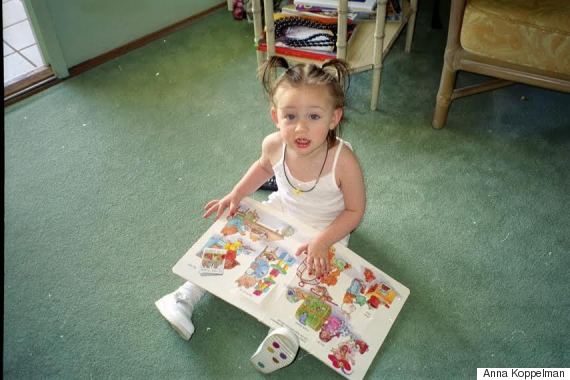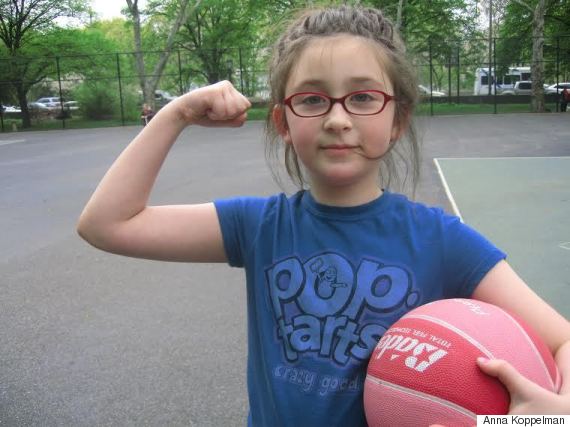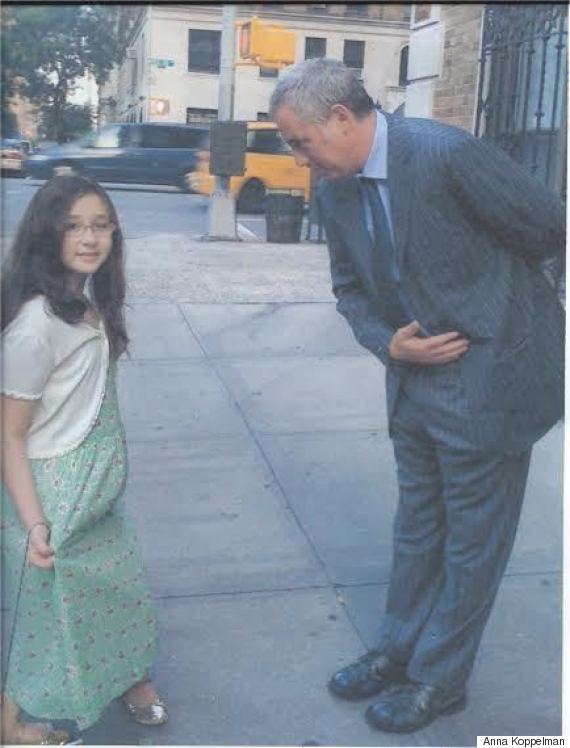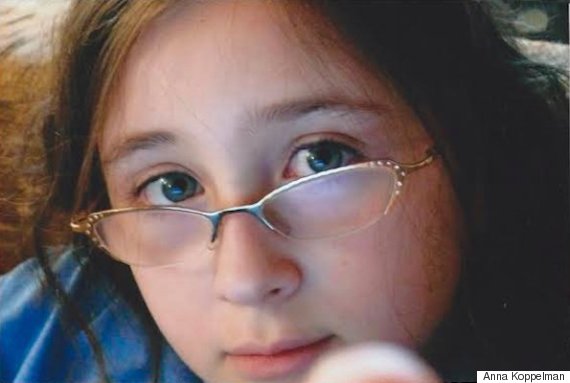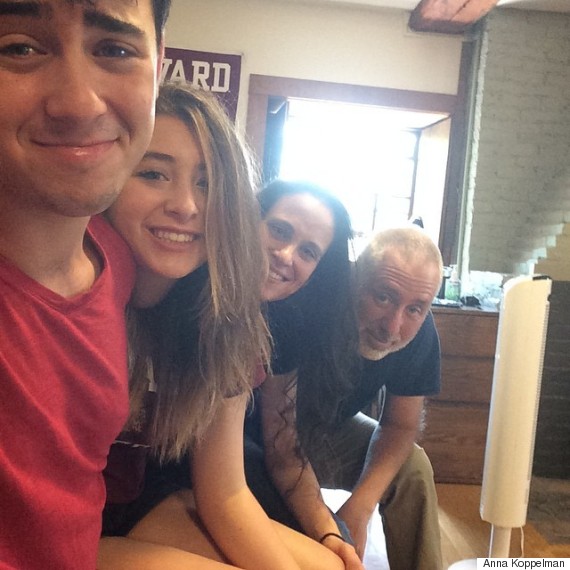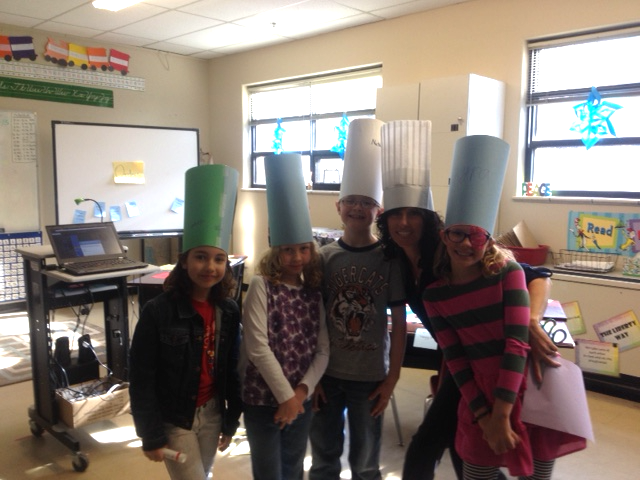Teacher-y Confessions-Real, Raw, Authentic
Sunday, March 15, 2015
Giftedness: A Deeper Look at the Controversial Label
Good afternoon, everyone! I am writing to you from my little duplex in Fort Worth, Texas on this cool, cloudy day in March. I am still waiting and longing for elongated periods of sunshine. The past few weeks with insane winter weather and rain have been so dark and gloomy. I'm ready for a change! There is something about sunshine and sunlight that speaks to my soul. It allows me to come alive, as if I've been in hibernation and now is the time to awaken. It also reminds me of the eternal light that I will one day experience.
There were a few comments posted on one of my previous blog posts that I haven't been able to shake since. I decided they were the perfect comments to spark another piece of writing about a topic that really gets the gears in my mind turning in regards to giftedness.
The comments argued and proposed that the label "gifted and talented" is detrimental to the labeled child and to other non-labeled children, is elitist and misinforming, and that such a label ought not to exist. The comments also suggested that giftedness is something that is merely the outcome of growing up in a privileged home where parents or caregivers had the opportunity to expose their children early to learning and thus gave them opportunities that other less-privileged children were not given.
So this urges the following questions: Is giftedness/gifted-and-talented-ness a label that is understood by others? What does "giftedness" or being "gifted and talented" suggest or mean? Is giftedness something developed due to the environment you are raised in, or is it something innate within a human being?
Before opening up all of these cans of worms, I would like to ask for us all to broaden and open our minds and view this conversation through multiple perspectives. I also would like to remind you that I am no expert, nor am I a person who has done deep, in-depth psychological studies at a doctorate degree level. I am simply a highly-gifted adult who is a teacher of the highly-gifted, who spends all of my days Monday-Friday from 7:30-3:30 with highly-gifted children, and thus my expertise solely derives from the fact that I daily have hands-on experience with this type of child, this type of learner, this type of thinker, this type of creator, this type of doer...and that I myself was and am what they are.
The label of "giftedness" or being "gifted and talented" is a tricky one that I'd like to unpack with you. When a child is labeled as such, it simply means that they show a general intellectual ability- a way of thinking, problem-solving, and reasoning, whether critically, analytically, creatively, intuitively- that is higher or more advanced than their same aged peers. What it does NOT mean is that they are the highest readers or mathematicians in the class. What is does NOT mean is that they are the students with the highest grades or the ones on stage as a valedictorian. (Can a gifted child be the highest reader or valedictorian?, yes, they can, but giftedness does not necessitate high achievement.) Thus, when a child shows a way of thinking and processing the world that is extraordinarily different than that of their same-aged peers, they are given the label of giftedness. Gifted = a different way of thinking and processing the world around you.
I think that the label "gifted and talented" is deeply misunderstood by others, whether they are educators, parents, siblings, or friends. Children labeled gifted and talented DOES NOT mean that they are the smart ones, the better ones, or the only ones with gifts and talents, and that someone who is not identified as "GT" has nothing to offer the world. Far, far from it. There are gifts and talents, passions and interests, things that motivate and move us all in different ways, and as humans not one of us is created the same way as someone else. We are all unique, and just because a child is not identified as "gifted and talented" does not mean they do not have gifts or talents or specific areas of strength.
I honestly was sitting here trying to think of a better label or term for giftedness, but in many of the ideas that popped up the definition could fall short. I agree that the term and the label can be misleading and suggest that someone without that label has no gifts or talents, so maybe there's just blame in the name, but for now, that's the term that our society uses, and I think we need to learn to call a spade a spade. The term exists to identify children with certain educational needs so that they will be given opportunities to have those needs met, and that needs to be communicated better. I also think that teachers and parents of the gifted need to truly acknowledge what the distinction means and teach their children what it means, so that all involved can talk about it and approach it in a humble, understanding way. When children who are GT are using it to put down or belittle others, or when students who are GT are told their whole lives that they aren't living up to their label, we have a real problem with what giftedness really is. We are seeing it as something it's not, and we are using it to cause division or wrongly motivate a person to achieve or do better. We also have a real problem in communicating what it is to others, and feelings or comments that exude elitism exist because of poor communication.
This is something that the program I work for aims to redirect as it works with gifted children and their families. We are trying to better define what giftedness is and means for all involved, and to teach the children in the program what it means to be gifted and how to cope with it as they grow up. We discuss things with them such as humility, confidence, empathy, viewing things through multiple perspectives, emotionality/sensitivity, and viewing mistakes as opportunities for growth and learning. We are trying to knock down the widespread belief that gifted children are high-achieving, extremely self-motivated, the ones who go above-and-beyond what is expected, the ones who never experience defeat or struggle, the ones who have the easy road, the ones who always get things the first time, the ones who don't have to try or work as hard...because all of those are myths. Spend a day in a class full of them, and you will quickly see that all of those are beliefs held by society that hold zero water.
My response to situations that I hear of children being put down or hurt because they are not "gifted" or "special" is that the school, students, teachers, and parents are misrepresenting what giftedness is, and what a pull-out program is for. It is not a program for the children who are better than everyone else, or smarter than everyone else. It is, or ought to be, a program that engages a gifted thinker and meets the educational needs that a gifted child has due to the way they think and process. Just like we have pull-out programs or integrated specialists that work with children with their speech, or dyslexia, or a learning disability, or programs that allow students to "telescope" by jumping ahead a grade or two in mathematics because they are ahead of their grade-level curriculum, all of those opportunities are designed to meet children where they are and give them the educational support to grow and improve and have their own specific learning needs met. There is no difference in a gifted and talented program- it is meant to achieve the same goal, to meet the needs of a gifted thinker and learner and help them grow and improve.
As to the question of whether giftedness is something developed through an upbringing of privilege or something innate, I would like to present the following argument. The first four years of my teaching career were spent teaching first grade at a low-income, Title 1 campus. The students I taught largely came from single-parent or blended families and backgrounds of poverty (not all, but the majority). These were children that had been in and out of foster homes, living with grandparents or distant aunts or their fourth father figure, taking care of themselves because no adult was ever around to cook them dinner or give them a bath. These were children who would come to school hungry, who hadn't eaten since lunch at school the day before. Some were children whose parents hadn't graduated high school, or whose parents were unable to teach early literacy due to language barriers. Like I said earlier, this was true not for all, but for many of the children that came through our doors. Children who were not born to privilege, did not get the opportunity of being taught early at home how to read or write, whose first time holding a pencil or a crayon was day 1 of kindergarten. And yet...there were gifted thinkers among them. Children who saw and processed the world in a unique, gifted way. Children who had extremely advanced vocabularies and high-level, curious, deep questions. Giftedness is not something reserved for the elite, for the wealthy, for those with plush or privileged upbringings. It is, in my humble opinion, something a person was created with, a mind that they were given, just as we all are given our unique minds and gifts and talents.
I could write also arguing against the talent development paradigm of giftedness, but alas, that may be another post for another time. :) As always, thank you for being part of this conversation, and in true conversational fashion, feel free to sound off in the comments your thoughts, questions, or ideas. I promise never to delete a comment that simply disagrees with what I've stated, but I reserve the right to remove ones that are downright hateful, derogatory, crude, or are in no way helpful towards the conversation.
In conclusion, I hope that the world of giftedness can continue to be explored and explained in ways that others can embrace and accept. Despite the controversial nature of the label, my goal is to help others have a redeemed, honest view and understanding of its meaning, and for the children labeled as such (as well as their parents, teachers, and peers) to understand what it means for themselves.
See the Original Post Here
There were a few comments posted on one of my previous blog posts that I haven't been able to shake since. I decided they were the perfect comments to spark another piece of writing about a topic that really gets the gears in my mind turning in regards to giftedness.
The comments argued and proposed that the label "gifted and talented" is detrimental to the labeled child and to other non-labeled children, is elitist and misinforming, and that such a label ought not to exist. The comments also suggested that giftedness is something that is merely the outcome of growing up in a privileged home where parents or caregivers had the opportunity to expose their children early to learning and thus gave them opportunities that other less-privileged children were not given.
So this urges the following questions: Is giftedness/gifted-and-talented-ness a label that is understood by others? What does "giftedness" or being "gifted and talented" suggest or mean? Is giftedness something developed due to the environment you are raised in, or is it something innate within a human being?
Before opening up all of these cans of worms, I would like to ask for us all to broaden and open our minds and view this conversation through multiple perspectives. I also would like to remind you that I am no expert, nor am I a person who has done deep, in-depth psychological studies at a doctorate degree level. I am simply a highly-gifted adult who is a teacher of the highly-gifted, who spends all of my days Monday-Friday from 7:30-3:30 with highly-gifted children, and thus my expertise solely derives from the fact that I daily have hands-on experience with this type of child, this type of learner, this type of thinker, this type of creator, this type of doer...and that I myself was and am what they are.
The label of "giftedness" or being "gifted and talented" is a tricky one that I'd like to unpack with you. When a child is labeled as such, it simply means that they show a general intellectual ability- a way of thinking, problem-solving, and reasoning, whether critically, analytically, creatively, intuitively- that is higher or more advanced than their same aged peers. What it does NOT mean is that they are the highest readers or mathematicians in the class. What is does NOT mean is that they are the students with the highest grades or the ones on stage as a valedictorian. (Can a gifted child be the highest reader or valedictorian?, yes, they can, but giftedness does not necessitate high achievement.) Thus, when a child shows a way of thinking and processing the world that is extraordinarily different than that of their same-aged peers, they are given the label of giftedness. Gifted = a different way of thinking and processing the world around you.
I think that the label "gifted and talented" is deeply misunderstood by others, whether they are educators, parents, siblings, or friends. Children labeled gifted and talented DOES NOT mean that they are the smart ones, the better ones, or the only ones with gifts and talents, and that someone who is not identified as "GT" has nothing to offer the world. Far, far from it. There are gifts and talents, passions and interests, things that motivate and move us all in different ways, and as humans not one of us is created the same way as someone else. We are all unique, and just because a child is not identified as "gifted and talented" does not mean they do not have gifts or talents or specific areas of strength.
I honestly was sitting here trying to think of a better label or term for giftedness, but in many of the ideas that popped up the definition could fall short. I agree that the term and the label can be misleading and suggest that someone without that label has no gifts or talents, so maybe there's just blame in the name, but for now, that's the term that our society uses, and I think we need to learn to call a spade a spade. The term exists to identify children with certain educational needs so that they will be given opportunities to have those needs met, and that needs to be communicated better. I also think that teachers and parents of the gifted need to truly acknowledge what the distinction means and teach their children what it means, so that all involved can talk about it and approach it in a humble, understanding way. When children who are GT are using it to put down or belittle others, or when students who are GT are told their whole lives that they aren't living up to their label, we have a real problem with what giftedness really is. We are seeing it as something it's not, and we are using it to cause division or wrongly motivate a person to achieve or do better. We also have a real problem in communicating what it is to others, and feelings or comments that exude elitism exist because of poor communication.
This is something that the program I work for aims to redirect as it works with gifted children and their families. We are trying to better define what giftedness is and means for all involved, and to teach the children in the program what it means to be gifted and how to cope with it as they grow up. We discuss things with them such as humility, confidence, empathy, viewing things through multiple perspectives, emotionality/sensitivity, and viewing mistakes as opportunities for growth and learning. We are trying to knock down the widespread belief that gifted children are high-achieving, extremely self-motivated, the ones who go above-and-beyond what is expected, the ones who never experience defeat or struggle, the ones who have the easy road, the ones who always get things the first time, the ones who don't have to try or work as hard...because all of those are myths. Spend a day in a class full of them, and you will quickly see that all of those are beliefs held by society that hold zero water.
My response to situations that I hear of children being put down or hurt because they are not "gifted" or "special" is that the school, students, teachers, and parents are misrepresenting what giftedness is, and what a pull-out program is for. It is not a program for the children who are better than everyone else, or smarter than everyone else. It is, or ought to be, a program that engages a gifted thinker and meets the educational needs that a gifted child has due to the way they think and process. Just like we have pull-out programs or integrated specialists that work with children with their speech, or dyslexia, or a learning disability, or programs that allow students to "telescope" by jumping ahead a grade or two in mathematics because they are ahead of their grade-level curriculum, all of those opportunities are designed to meet children where they are and give them the educational support to grow and improve and have their own specific learning needs met. There is no difference in a gifted and talented program- it is meant to achieve the same goal, to meet the needs of a gifted thinker and learner and help them grow and improve.
As to the question of whether giftedness is something developed through an upbringing of privilege or something innate, I would like to present the following argument. The first four years of my teaching career were spent teaching first grade at a low-income, Title 1 campus. The students I taught largely came from single-parent or blended families and backgrounds of poverty (not all, but the majority). These were children that had been in and out of foster homes, living with grandparents or distant aunts or their fourth father figure, taking care of themselves because no adult was ever around to cook them dinner or give them a bath. These were children who would come to school hungry, who hadn't eaten since lunch at school the day before. Some were children whose parents hadn't graduated high school, or whose parents were unable to teach early literacy due to language barriers. Like I said earlier, this was true not for all, but for many of the children that came through our doors. Children who were not born to privilege, did not get the opportunity of being taught early at home how to read or write, whose first time holding a pencil or a crayon was day 1 of kindergarten. And yet...there were gifted thinkers among them. Children who saw and processed the world in a unique, gifted way. Children who had extremely advanced vocabularies and high-level, curious, deep questions. Giftedness is not something reserved for the elite, for the wealthy, for those with plush or privileged upbringings. It is, in my humble opinion, something a person was created with, a mind that they were given, just as we all are given our unique minds and gifts and talents.
I could write also arguing against the talent development paradigm of giftedness, but alas, that may be another post for another time. :) As always, thank you for being part of this conversation, and in true conversational fashion, feel free to sound off in the comments your thoughts, questions, or ideas. I promise never to delete a comment that simply disagrees with what I've stated, but I reserve the right to remove ones that are downright hateful, derogatory, crude, or are in no way helpful towards the conversation.
In conclusion, I hope that the world of giftedness can continue to be explored and explained in ways that others can embrace and accept. Despite the controversial nature of the label, my goal is to help others have a redeemed, honest view and understanding of its meaning, and for the children labeled as such (as well as their parents, teachers, and peers) to understand what it means for themselves.
See the Original Post Here

